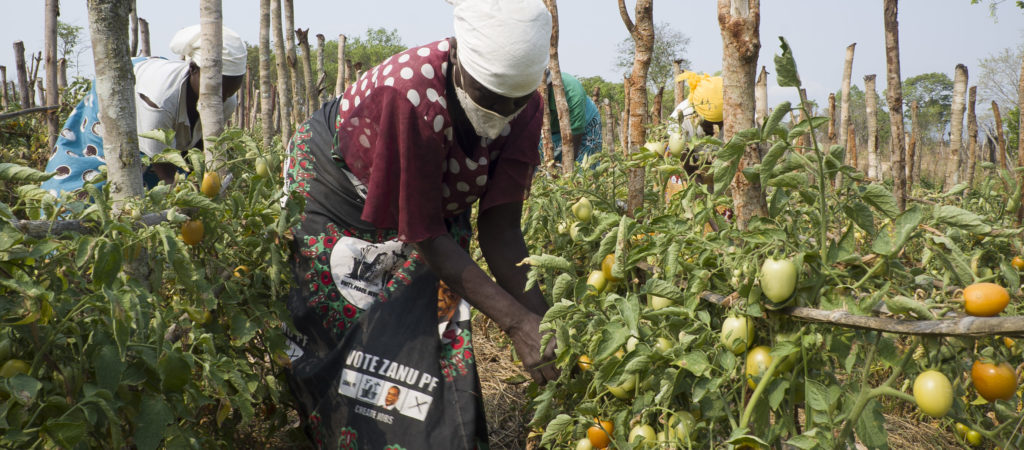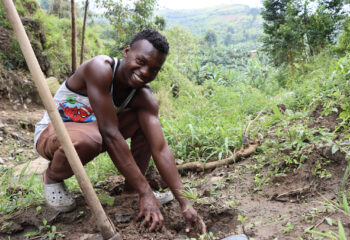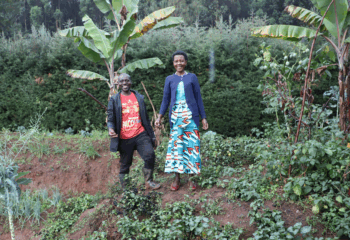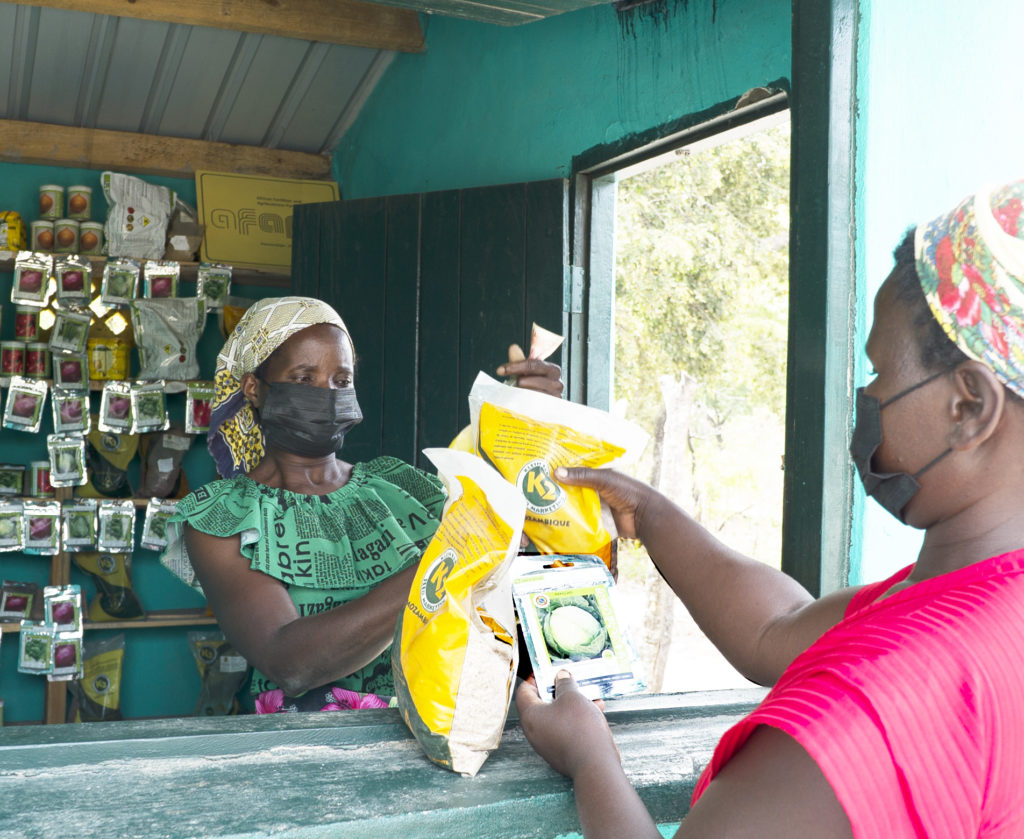
This year’s maize harvests exceeded expectations, and as a result, Joyce Pedro Wachi of Nyarowa village near Sussundenga was able to buy two cows with proceeds from the surplus. The cattle, valued at around 36,000 meticais, are a welcome addition to the seven she already owned, creating more draft power to extend the family’s plot.
“I bought the Klein Karoo ZM523 seed maize variety, and the results were beyond expectations. The harvest doubled from the previous season. I managed to sell 2 tons of maize because of increased output from using certified maize seeds, which are faster to grow, have bigger cobs, and are disease resistant,” said a smiling Joyce, demonstrating the knowledge she has gained on the hybrid maize variety while showing off some of the cobs retrieved from the grain store reserved for the family’s consumption. Maize is an essential aspect of the diet, and once separated from the cobs, it is ground into a meal at the local grinding mill. It is usually prepared into a thick porridge, a staple food consumed in many parts of Mozambique, often served with relish consisting of various vegetables, fish, or meat. Joyce says there is no reason to take the maize to the market as buyers usually make their way to Nyarowa, where they buy maize at competitive prices from the farmers for resale.
“After planting two kilograms of hybrid seed, I was able to realize nearly twelve buckets of maize compared to six that I realized on the exact piece of land.”
Wachi’s story is not an isolated one. Jane Mateos Madinha, a 77-year-old grandmother of three, shares the same appreciation. She applauds the TEAMS implementing organization, Associação Kwayedza Simukai Manica (AKSM), which has seen smallholder farmers in the Sussundenga District access certified seeds, fertilizer, and training on best agricultural practices. Madinha is happy that her small plot, which is around one-third of a hectare, has yielded almost double what she used to get, courtesy of the use of certified seed. “After planting 2 kilograms of hybrid seed, I was able to realize nearly 12 buckets of maize, compared to six that I realized on the exact piece of land,” she noted. Madinha said in previous years they used seeds from their granaries, which gave inferior yields that were continually affected by diseases, creating hunger in the village and leading to the loss of many lives, especially infants.
Farmers are now more informed and aware of the need to make plans for the farming season. At Joyce’s homestead, land preparation was at an advanced stage, done in line with the sloping terrain as per the recommendations of the agricultural extension workers from AKSM. Enthusiasm for the new farming season was well exhibited by the presence of hybrid seed packs already purchased in anticipation of good rains. Joyce says proceeds from the 2021 agricultural season will be used to build a bigger house, buy more cattle, and improve the general living standards at the homestead.
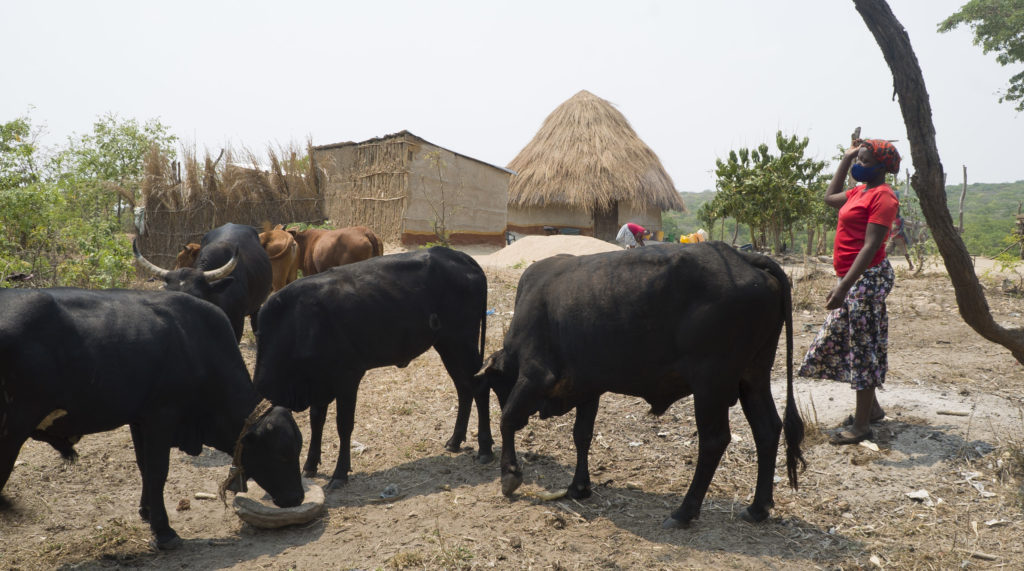
Madinha said while the temptation to use cheaper uncertified seeds may exist, the poor harvests suffered before have quickly made her a believer and compelled her to shift to a CSA solution that had proven its worth. Seeing her walk home with her grandson after purchasing maize and vegetable seed packs, one certainly can hope that, since perceptions are changing for the older generation, chances are high that the younger generations will adopt the CSA solutions introduced by the TEAMS program.
Since 2019, AKSM has facilitated the training of 19 agro-dealers in business management for input retail, technical expertise, and handling skills. The movement, which has empowered nine women, also covered the establishment and management of input marketing demonstrations, access to finance, and integration into input supplier distribution networks through input consignment credit.
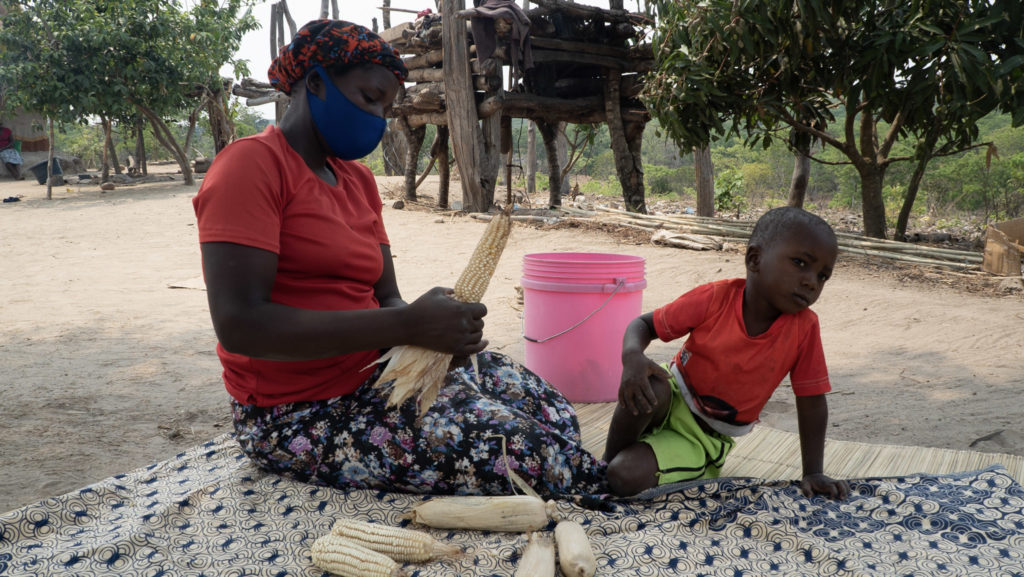
AKSM village-based agents, such as Julia Nasson Carlos in Manica, working with input suppliers such as K2, Omnia, and Syngenta, are providing certified okra, carrot, onion, tomato, and other vegetable seed varieties that have proved to be a game-changer for the local communities in terms of yields. Many of the village-based agents were unemployed and have now transformed their lives by selling certified seed, fertilizers, and chemicals in their brightly green-colored shops. Carlos said, “I was unemployed, and my role as a village-based agent has certainly changed my life for the better. I am now in a position to better take care of my family as a result of selling the various inputs from my shop.”
To illustrate that they have indeed mastered their trade, those like Carlos have become a wealth of knowledge to the community, dispensing information associated with the numerous seed varieties with relative ease. The village-based agents and agro-dealer shops were built under the TEAMS program through AFAP. “My customers say the certified seeds that I sell them have a better yield with the appropriate use of fertilizer, particularly for the vegetable varieties, as per our training. The final product in terms of production is very appealing and on good days fetched higher prices when delivered to markets in Chimoio and Manica,” noted Carlos.
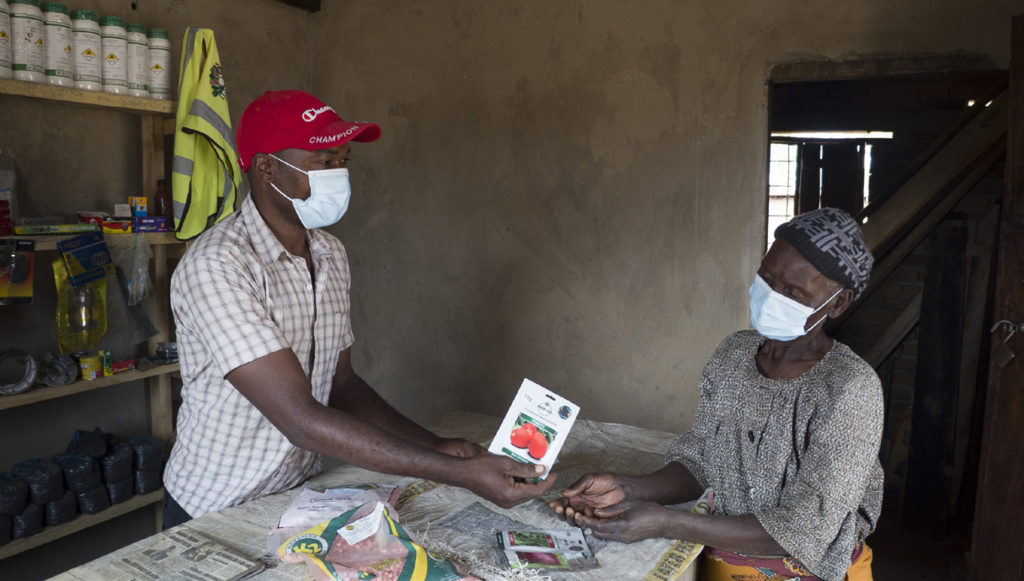
AKSM field extension officer, Comichane Avelino, observed that the combination of demonstration plots and the network with agro-dealers and village-based agents has also culminated in farmers in the project areas having access to a wide array of vegetables to consume all year round and for the market. “In Mutongwa village, 29 families have benefited from a communal demonstration plot initiated this year, where off-season vegetable production has seen the growing of tomatoes, cabbages, green pepper, carrots, and onions for sale and household consumption,” he said. Avelino is proud of the strides farmers have taken to participate in training and eventually adopt CSA practices on their farms. In a place where output has been affected by low adoption of hybrid seed varieties, the demonstration plots simulate ideal conditions of fertilizer application and, where possible, CSA irrigation solutions.
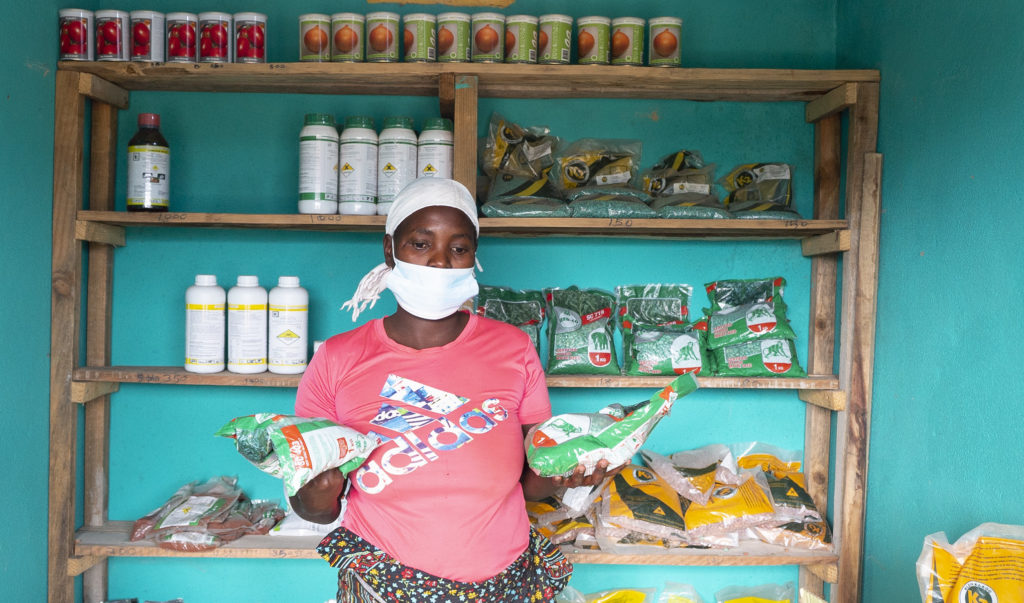
Avelino mentioned that there is an increased passion for knowledge, especially from women farmers, many of whom now make their way to the village-based agents to buy inputs and seek information on market trends. The role played by these women is fundamental in the fight against malnutrition. As more women continue to participate in agricultural production and use CSA solutions such as those introduced by the TEAMS program, the future becomes more promising for a once marginalized group.
